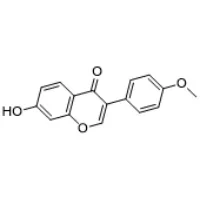Air conditioning (AC) systems have become an integral part of our lives, providing comfort and maintaining optimal indoor temperatures. However, not all AC systems are created equal. In this article, we will delve into the key differences between mechanical and electronic AC systems, shedding light on their unique features, advantages, and applications.
- Working Principles:
Mechanical AC: Mechanical AC systems rely on mechanical components such as compressors, condensers, and evaporators to cool and circulate air. These systems use refrigerants to absorb heat from indoor air and release it outside, creating a cooling effect.
Electronic AC: In contrast, electronic AC systems utilize solid-state electronic components, such as thermoelectric modules or semiconductor devices, to achieve cooling. These systems employ the Peltier effect or thermoelectric cooling, where an electric current is passed through two dissimilar materials, resulting in a temperature difference and subsequent cooling.
- Energy Efficiency:
Mechanical AC: Traditional mechanical AC systems are known for their energy consumption, as they rely on mechanical processes that require significant power. However, advancements in technology have led to the development of more energy-efficient mechanical AC systems, such as variable refrigerant flow (VRF) systems, which optimize energy usage by adjusting the refrigerant flow based on cooling demands.
Electronic AC: Electronic AC systems have gained popularity due to their energy efficiency. By utilizing solid-state components, these systems can precisely control cooling and minimize energy wastage. Additionally, electronic AC systems often incorporate advanced sensors and smart algorithms to optimize energy consumption further.
- Noise Levels:
Mechanical AC: One drawback of mechanical AC systems is their noise levels. The operation of compressors and fans can generate considerable noise, which can be disruptive in certain environments, such as bedrooms or offices requiring a quiet atmosphere.
Electronic AC: Electronic AC systems, on the other hand, are generally quieter due to the absence of mechanical components. The solid-state nature of these systems reduces vibrations and eliminates the need for noisy compressors and fans, providing a more peaceful and comfortable environment.
- Maintenance and Lifespan:
Mechanical AC: Mechanical AC systems typically require regular maintenance, including filter cleaning, refrigerant checks, and compressor servicing. Failure to perform proper maintenance can lead to reduced efficiency and potential breakdowns. The lifespan of mechanical AC systems can vary depending on usage and maintenance, but they generally last between 10 to 15 years.
Electronic AC: Electronic AC systems generally require less maintenance compared to mechanical systems. With fewer mechanical parts, there is less wear and tear, reducing the need for frequent servicing. The lifespan of electronic AC systems is also similar to mechanical systems, typically ranging from 10 to 15 years.
Conclusion:
In summary, the difference between mechanical and electronic AC systems lies in their working principles, energy efficiency, noise levels, and maintenance requirements. Mechanical AC systems rely on mechanical components and refrigerants, while electronic AC systems utilize solid-state electronic components. While mechanical systems have improved energy efficiency with advancements like VRF, electronic systems excel in energy efficiency and noise reduction. Both types require maintenance, but electronic systems generally have lower maintenance needs. Understanding these differences can help in choosing the most suitable AC system for specific applications, ensuring optimal comfort and efficiency.

